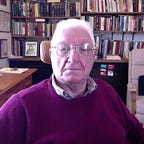Superior And Inferior Peoples
In has been less than three hundred years and in some situations less than one hundred years, or even currently in some cases, when it was that a majority of peoples took it for granted that one’s place in society’s pecking order was preordained by bloodlines. So one should imagine just how shocking it was to the natural order of things when Thomas Jefferson, a slave holding aristocrat, wrote in America’s Declaration of Independence the words: “We hold these Truths to be self-evident, that all Men are created equal, that they are endowed by their Creator with certain unalienable Rights, that among these are Life, Liberty, and the Pursuit of Happiness….”
Not only must many peoples have seen this as a rejection by Jefferson of his own class, but also such a wild statement went against the basic thinking of humanity from time immemorial. There had always been a God given natural order of life in which “men” were expected to know their place in that order, and that to act against certain obvious assumptions of the social hierarchy in many instances was literally a crime.
There was a mildly profound example in my own life, which is of one being expected to maintain one’s preordained place in society. My mother was a single (though not technically so as divorce in those days was a slow process) working mother, and we lived with my grandmother who was born way back in 1888. Nana (grandma) had been the wife of a handyman/chauffeur (my maternal grandfather having died soon after my birth) employed by one of the town’s leading industrialists. Thus she saw her family as being firmly rooted within the servant class. This was in the late 1950’s, but Nana’s mindset conditioning was during that period so marvelously portrayed in the grand PBS presentation of Downton Abbey,which emphasized the distinct separation of the classes of the late eighteenth and early twentieth centuries.
As this extreme separation of the class had greatly diminished by the time of my senior year of high school (during the early years rock and roll), it was nowhere to be seen on my radar. Therefore I was a bit mystified when Nana strongly suggested that it was not my place to have a beautiful girlfriend from the upper middleclass. The memory of Nana’s rebuke of my association with a “high-class” young lady would become a stark reminder to me of just how radically social norms can change from generation to generation. In a quite tangent way she was right; I didn’t have a snowball’s chance in hell with this awesome beauty in the long run, but that’s another story entirely.
The main point is that social change has been accelerating at an ever faster rate since America’s founding fathers did what many at the time considered the unthinkable, that which today we call the great experiment in democracy, which in large part was meant to break down social barriers.
With change comes friction. What I have stated many times is that the human ego hates change, and the human ego wants what it wants. Thus America has suffered much violence during its relatively short history. The American Civil War, entailing the deaths of some six hundred thousand of the nation’s peoples, no doubt being the worst example.
America’s founding fathers were among the most unique body of men — maybe ever. A few like Benjamin Franklin and Alexander Hamilton (the latter, though being bastard born, was taken up by a man of influence that proved critical to his eventual rise to founding father) were self-made men, but most were from among the established upper class, and some, alas, like Washington and Jefferson were even from the slave holding set. Yet most were also intellectuals and experimenters at heart like Jefferson and Franklin. Moreover, many were likewise students of the French enlightenment period.
It was being highly influence by the enlightenment period that most likely caused these special men to buck tradition of class and suggest that “all men are created equal,” though with some founding fathers they likely did not mean it as a literal reality, but rather as something that humanity might see as a long-term inspirational objective. Surely they understood that with the institution of slavery being so deeply ingrained within the economic and social fabric of parts of America that such ideals as expressed in the Declaration of Independence might never be fully achieved.
The single most important factor, however, that the American experiment in democracy opposes isn’t racial norms, rather it’s social norms of class of which race is but a part. Still, conceding that in America race is a particularly large part. Indeed, a social experiment that takes on both race and class may end up being a bridge too far. Still, America has managed to survive a bloody civil war, though its conflict wounds and the underlying causes of extreme violence festers on in the people and body politic. Sometimes, however, like when the nation elects a Blackman (okay a partial Blackman) as president, it would seem that the nation has been raised to the ideals of the Declaration of Independence.
But, then, class and racial biases that are deeply imbedded within the most primitive parts of our brain counterattack in the person of one Donald J. Trump, and suddenly we relize that not only do we we have much work yet to do to reach the objectives of our founding fathers, but we are stressed to see that such seemingly impossible ideals and general freedoms as expressed by the nation’s founders can be obliterated in a heartbeat. In other words we are reminded that the old order of race and class is and never far off — that the inherent notion of super and inferior peoples is hard to overcome.
